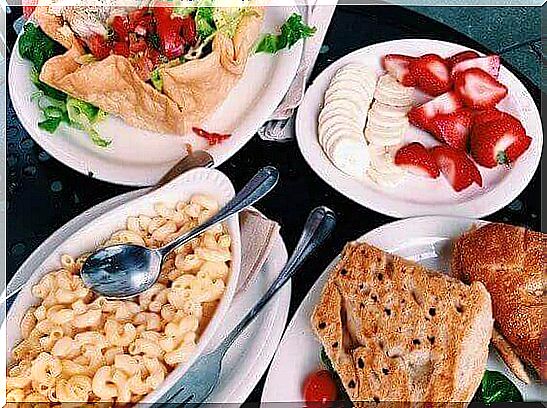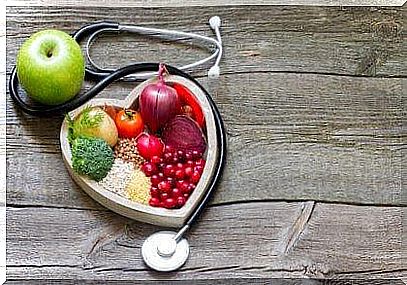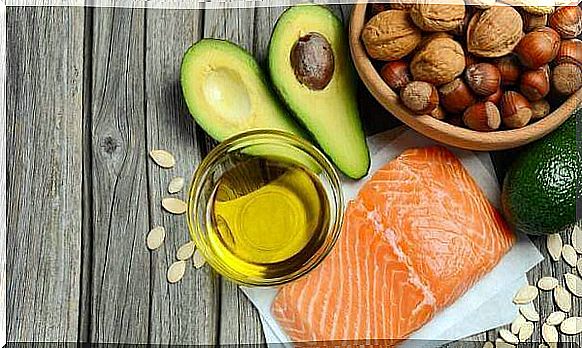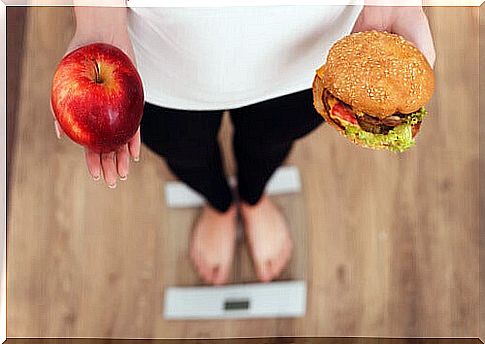The Three Most Common Myths About Diet

Nutrition is one of the most confused topics. Today there are a multitude of theories, misinformation, and varying views regarding how we should eat. For this reason, the majority of people feel lost when they want to lose weight or follow a healthier diet. For that, in this article we want to introduce you to the most common myths about diet.
All of these myths have been refuted by scientific studies over the years. So, today we can be sure that few people are able to tell us what is the best way to eat. For each of the myths, you will find the explanation that made them become so believable and the reasons which allowed them to be disproved.
However, before presenting these three myths, let’s try to understand why there are so many myths about science.
Myths About Diet: Why Do They Appear?
Nutrition, like psychology and medicine, is a science directly related to humans. Often, clinical studies that on paper seem ideal cannot be done for this reason. Knowledge of this field is therefore much more difficult to develop than that which concerns other fields such as physics or chemistry where the standards concerning handling are much less restrictive.

The majority of studies carried out in nutrition are based on statistics. The data provided by this mathematical technique is very useful, but generally, it does not allow us to establish a cause and effect. In fact, in many cases we cannot know why a particular outcome occurs.
This is one of the reasons that myths continue to grow. Indeed, if we do not carry out a clinical study, the data obtained from a nutritional point of view will always be incomplete. For this, this young science in its development has still not found the answers allowing to separate what is healthy from what is not.
However, in the last decades there has been an explosion of knowledge in this area, mainly due to the obesity epidemic that is spreading in the developed world. By following, we will discover the various myths that were considered as such not long ago.
1.Eating too many eggs is not healthy
One of the main myths about eating is that eating a lot of eggs (especially the yolk) can cause problems. The idea comes from the belief that consuming a lot of cholesterol increases the level of cholesterol in our body. Sounds logical doesn’t it?
The latest studies show that our cholesterol levels are not conditioned by foods such as eggs. We now know that our body produces four times more cholesterol than the amount we can ingest in a day. The impact of ingesting eggs is therefore not very powerful. Another question would be to study the impact of the foods with which we accompany our eggs.
2.Eating fat makes you fat
Another major diet myth claims that eating too much fat increases our weight. However , we now know that it does not work exactly that way.
This belief comes from the number of calories that each macronutrient contains: carbohydrates and protein have 4 calories per pound while fat contains 9. If we want to lose weight, then it would seem logical to eat more protein and carbohydrates and less fat.
However, recent studies show that eating fat well integrated into our diet can cause us to lose weight in normal amounts . This happens because this substance is involved in many fundamental weight loss processes such as testosterone production, feeling full and speeding up the basal metabolism (the rate at which we burn fat in a natural way).

3.Breakfast is the most important meal of the day
My grandmother kept telling me a popular quote that sums up one of the biggest myths about eating: “Breakfast like a king, eat like a prince and dine like a beggar”. This saying is based on the old belief that eating a very abundant breakfast is fundamental to keeping our bodies functioning throughout the day.
Eating a breakfast that is rich in nutrients (such as vegetables and protein) can give us lots of energy for the day. But the typical Western breakfast would act in a totally opposite way. During breakfast cereals or pastries, our body would suffer from a series of insulin spikes that would give us very little energy.
The two options most recommended by experts for breakfast are therefore:
- Eat foods low in sugars and which are not low in fat and protein.
- Eliminate breakfast by practicing what is known as intermittent fasting.
It is likely that our reflection on these food myths may have surprised you. Indeed, it contradicts everything we have traditionally learned about nutrition. However, the great thing about science is that it advances as new evidence is collected. Who knows what we will discover in the future in this area which is so important for our health? Because if there is one sentence that is not a myth, it is because “we are what we eat”.










